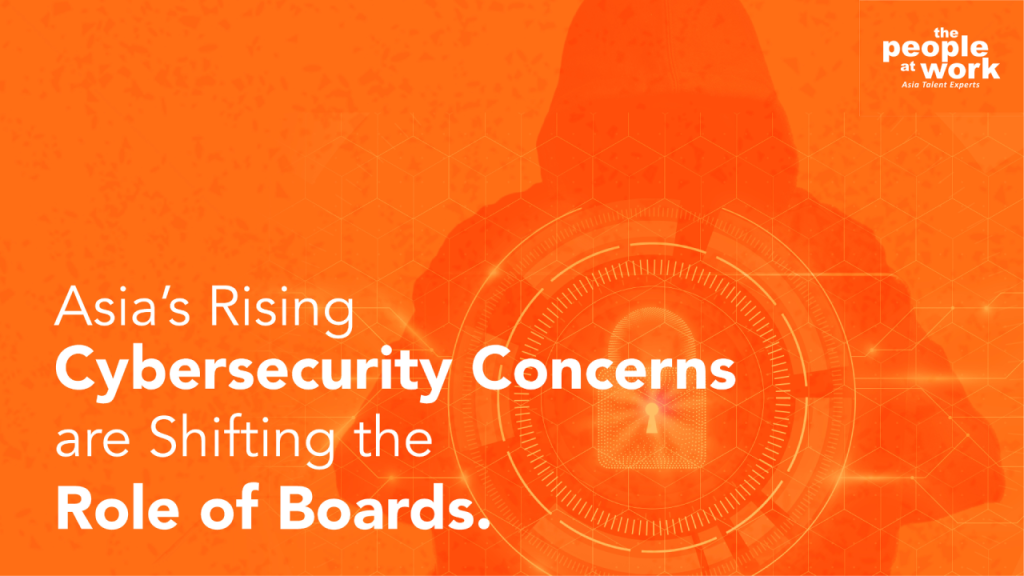By The People At Work

In today’s world, where data is gold, underinvesting in cybersecurity is a ticking timebomb.
Consequences range from reputational damage and financial losses due to data breaches and potential espionage, to intellectual property theft, and even national security threats. The loss of trust from stakeholders, regulatory penalties, and disruption of core operations can range anywhere from disruptive to outright devastating.
In Asia, home to the world’s most dynamic and fastest-growing digital economies, the call for boards to adapt, understand, and lead in the realm of cybersecurity governance is no longer an option but a matter of survival. Here’s why:
- According to an IBM report, APAC was the most attacked region in 2022, with 31% of attacks globally.
- A Check Point report indicates that the weekly average number of attacks in APAC in Q2 2023 increased by 22% year-on-year.
- More than half (59%) of all APAC organisations say they experienced cyberattacks in 2022.
- The 2023 Thales Data Threat Report states that 47% of those surveyed spoke about an increase in attacks on their organisations.
- A July 2023 survey by Cloudflare that involved more than 4,000 cybersecurity managers in Australia, China, Hong Kong, India, Indonesia, Japan, Malaysia, New Zealand, The Philippines, Singapore, South Korea, Taiwan, Thailand, and Vietnam showed that 78% experienced at least one cybersecurity incident in the last 12 months.
- 80% reported four or more incidents, while 50% reported 10 or more.
- 63% estimated the financial impact of cyber incidents at a minimum of $1 million, while 14% reported losses exceeding $3 million.
Despite the rising frequency of attacks, only 38% of those surveyed by Cloudflare described their organisations as being well-prepared to deal with cyber threats. More than one-third (36%) lack an incident response plan and are therefore vulnerable to attacks.
Threats go where innovation is; rapid digital development has not always been accompanied by bolstering cybersecurity, while the region’s attractiveness to cyber criminals has only increased. The growing dependence on technology makes cybersecurity a top priority for governments, businesses, and individuals. With cyber threats increasing and growing in complexity by the day around the world, the expectations and responsibilities placed on corporate boards in companies and organisations across Asia must acknowledge such threats to their business and customers. Boards must evolve more urgently to be more proactive, informed, and engaged in cybersecurity matters. Cybersecurity is not just the problem of “that IT guy” and later shoved aside; it needs to be viewed as an essential aspect of corporate governance at the highest levels in an organisation.
Share your thoughts in the comments and let’s keep the conversation going.
